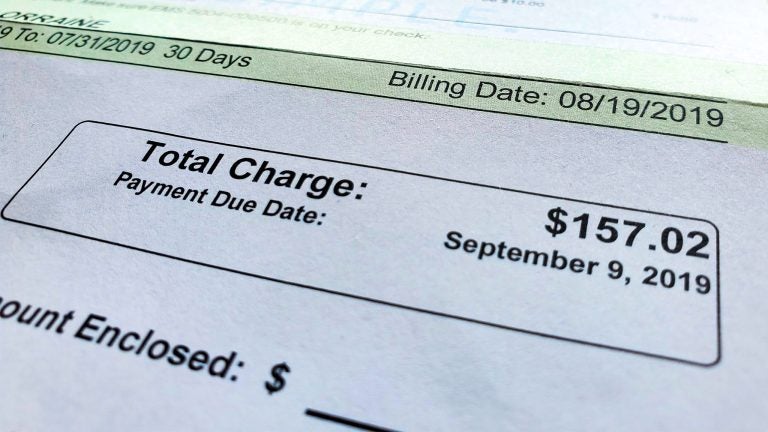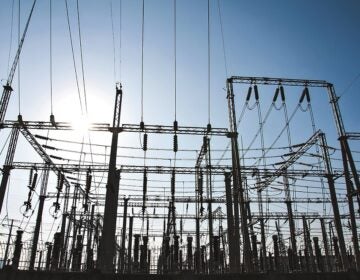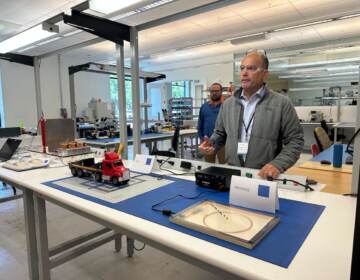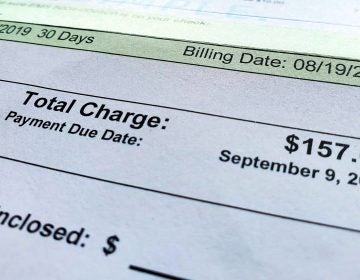PUC votes to make utility bills more affordable for low-income Pennsylvanians
In a 3-2 vote, Pa.’s Public Utility Commission amended its policy statement to reduce the burden on low-income customers in assistance programs.

(Mark Henninger for Billy Penn)
Energy bills will soon become more affordable for some low-income Pennsylvanians.
In a 3-2 vote Thursday, the state Public Utility Commission passed a motion that would reduce the impact of energy costs on the 2 million Pennsylvanians enrolled in customer assistance programs, or CAPs.
Since 1992, the PUC’s CAP policy statement has meant that low-income customers getting assistance might spend up to 17% of their income on energy costs.
But a study launched by the commission in 2017 found that percentage was too high and much higher than neighboring states like New York and New Jersey, whose maximum energy burdens are both 6%. Some of the lowest-income families in Pennsylvania were spending nearly 20% of their income on combined gas and electric costs, the study found.
To put that in perspective, someone with a household income of $10,000 could be spending $1,200 to $2,000 a year on energy bills.
The study also showed that the high threshold resulted in low-income customers enrolled in CAP programs paying more than non-CAP customers. On average, residents not enrolled in assistance programs put 4% of their income toward energy costs, while CAP customers on average spent 12% to 14% of their income toward gas heating and electric bills, and 8% to 10% on electric heat.
Now, in the biggest change to the commission’s policy in more than two decades, the PUC has amended its policy statement, reducing the CAP energy burden to 6% for the lowest-income households.
Robert Ballenger, senior attorney in the energy unit at Philadelphia-based Community Legal Services, cheered the change.
“Poor people can expect their bills to go down,” he said. “That is fantastic news. That is the right step here in Pennsylvania.”
The changes would benefit only those enrolled in CAP programs and would be tiered based on household income and energy source. For example, those making 51% to 150% of the federal poverty income guideline would pay up to 10% on energy bills, while those making even less would pay only 6%.
Ballenger said the changes will result in fewer low-income customers in the Philadelphia area having their heat and electricity shut off.
“The loss of services has such dire consequences for our clients,” he said, including the loss of child custody and illness.
PUC Vice Chair David Sweet, co-author of the motion, acknowledged that the changes would cause energy costs to go up by about $15 a year for those not enrolled in CAP programs, but he called it “a perceivably nominal difference to what is a tremendous savings for customers who otherwise struggle to pay for a basic household necessity.”
However, Commissioner Norman Kennard, who voted against the motion, said those increases were not fair to other customers, particularly those who just miss the income cutoff to participate in assistance programs.
“We cannot simply open the ratepayers’ checkbooks to pay for others’ bills,” Kennard said.
Sweet was also quick to point out that universal services costs affect those across the state differently, depending on a utility’s program and customer base, and he pointed to PGW in Philadelphia as an example in which non-CAP customers already pay $81.26 a year to support PGW’s assistance programs.
He noted that PGW currently pays $18 million to the City of Philadelphia each year, and another $1 million per year on top of that to the Philadelphia Gas Commission.
“I urge the city to forgo these payments and devote the money instead to a full-scale effort by PGW to significantly reduce the heating bills of its low-income residents,” Sweet said.
Beyond that, Sweet recommended that utility assistance be funded by a statewide pool, rather than utility by utility, to make assistance programs more equitable.
The next steps involve implementation of the policy statement. The commission is giving utilities 60 days to come back with plans on how they’ll implement the changes by or before Jan. 1, 2021.
The PUC also began a rulemaking process Thursday that will take the amended policy statement and other matters related to universal service and codify them into formal regulations, giving the commission the tools it needs to enforce the new policies. That rulemaking will be considered by the PUC by the first quarter of 2020.
 WHYY is one of over 20 news organizations producing Broke in Philly, a collaborative reporting project on solutions to poverty and the city’s push towards economic justice. Follow us at @BrokeInPhilly.
WHYY is one of over 20 news organizations producing Broke in Philly, a collaborative reporting project on solutions to poverty and the city’s push towards economic justice. Follow us at @BrokeInPhilly.
WHYY is your source for fact-based, in-depth journalism and information. As a nonprofit organization, we rely on financial support from readers like you. Please give today.





